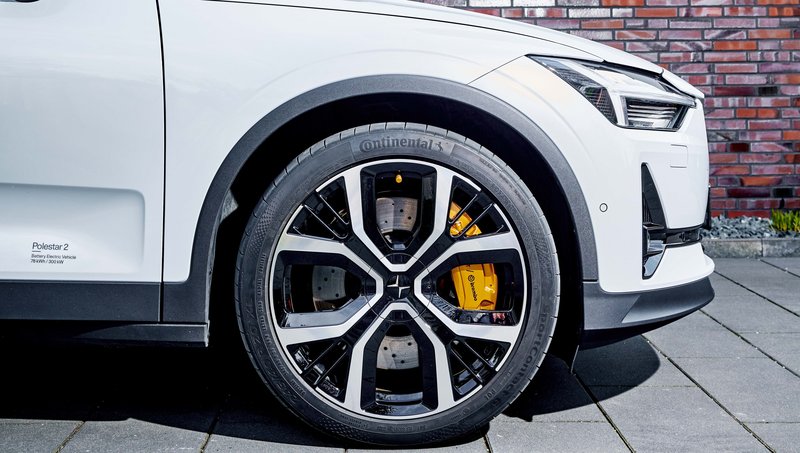Six of the world’s ten most successful electric vehicle manufacturers rely on Continental tires
- Original equipment approvals for six of the ten highest-volume manufacturers
- Eight of Europe’s 15 most popular electric cars and vans with approvals for Continental tires
- Trust in technological expertise: Continental is an original equipment supplier for electric cars from Tesla, Volkswagen, Mercedes-Benz and many more
Hanover, June 7, 2021. Continental is expanding its market share in the tire segment for fully electric vehicles In 2020, six of the world's ten highest-volume manufacturers of electric vehicles relied on the high technological expertise of the premium tire manufacturer for their original equipment. These included Tesla with its Model 3 and Model S and Volkswagen with the ID.3. Also Asian manufacturers, for example BYD, one of China's largest car producers, rely on Continental tires as original equipment for their electric vehicles. This underscores the product strategy and quality of the company's products in the electromobility segment.
“Fully electric models are now available from almost all car segments, from cabin scooters, small and mid-size cars to SUVs and high-performance sports cars. Individual tire configurations are required for each vehicle type,” says Andreas Schlenke, tire developer at Continental. “This means there isn’t just one tire for all fully electric vehicles. In fact, we have already been working for over a decade on developing our existing portfolio so that they meet the requirements of all electric vehicles and, at the same time, are able to sustainably reduce emissions from combustion vehicles as well. Meanwhile, almost our entire range of tires is optimized for all drive types and the majority of our products can be found on electric vehicles today.” For electric vehicles that are not already equipped with Continental tires from the factory, the manufacturer now has summer, winter and all-season tires in its portfolio for almost every model.
Tires from the entire Continental product portfolio in use
According to investigations by Continental, tires account for up to 20 percent of the total resistance faced by a vehicle. Accordingly, customers can gain additional range thanks to tires with optimized rolling resistance. Low rolling resistance is therefore in particular demand for electric cars that focus on efficient driving. In this case, many manufacturers rely on the EcoContact 6, in which Continental uses the Green Chili 2.0 rubber compound. The special compound of natural rubber and other components shows significantly improved behavior during mechanical deformation. This results in lower rolling resistance and therefore lower energy consumption.
When developing the EcoContact 6, Continental was able to reduce rolling resistance by 15 percent compared with its predecessor.
Suppliers of medium and high-priced vehicles place other demands on the choice of tires. Handling, steering precision and safety at high speeds are more important here. Corresponding manufacturers have opted for tires from the PremiumContact or SportContact series. With the PremiumContact 6, Continental is offering a balance between efficiency, sportiness and comfort. The SportContact 6 is a tire for the top-performance segment with a focus on handling and steering precision. Thanks to its stability and brake performance, it is designed for safety at high speeds.
“The development of tires is always a technical conflict of objectives,” explains Schlenke. “For example, a high rolling resistance can result in greater safety, but also higher energy consumption. Therein lies the skill of our engineers to improve both dimensions at the same time.”
The engine noise is no longer present, so electric car drivers attach greater importance to low rolling noises. High-quality vehicles with a high level of comfort therefore also use ContiSilent technology when it comes to their choice of tires. A special foam layer absorbs the vibrations of the road and therefore reduces the transmission of noise into the vehicle interior. This is particularly important for electric vehicles, as there are no engine noises and the motor runs very quietly.

Sarah Steingrube
Spokeswoman
Passenger Car and Truck Tires EMEA



